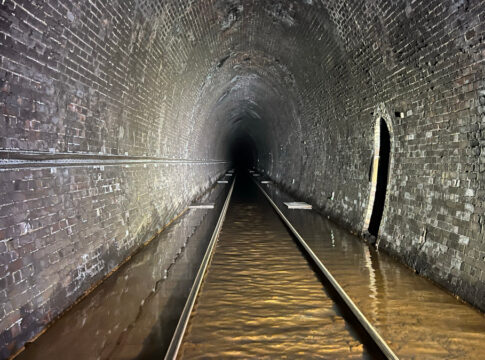Passengers are being given early notice of plans to replace a section of track on the Cumbrian coastline in August this year.
The track renewal work will involve closing the line on the Barrow Coast Route between Sellafield and Workington from 30 August for approximately 23 days.
Part of the line has been affected by the ochre-contaminated water flowing from abandoned mines through Bransty tunnel before discharging into Whitehaven Harbour. The discharge of the ochre-contaminated water, first reported in December 2022, is subject to on-going discussions with several public bodies and local stakeholders.
In the interim and separate to these discussions, Network Rail is undertaking the scheduled track renewal works, with the track and drainage in Bransty tunnel being replaced, to ensure its longevity for the future.
The track renewal work is not designed to remedy the dis-colouration of the harbour water which is caused by ochre contaminated water flowing from abandoned mines. The works are part of Network Rail’s normal track and drainage work bank.
Phil James, North West route director, said: “We know that local residents are frustrated about the historic mine water in Whitehaven harbour. Our focus is on keeping the railway running safely through Bransty tunnel. We have had to take extra time to carefully plan this work and gain the necessary permissions. We are now fully committed to delivering a full renewal of the track and drainage in August.”
Craig Harrop, regional director for Northern, commented: “Work to protect the reliability of the rail infrastructure is essential for our future service delivery and despite the short-term disruption it might bring, it is always welcome. Customers can rest assured we will put a plan in place to ensure they can still get to where they want to be during the line closure. More details will be released closer to the date.”
Network Rail has been working with the Environment Agency and the Mining Remediation Authority (formerly the Coal Authority) to ensure it has the necessary permits and permissions for the work.
Image credit: Network Rail
